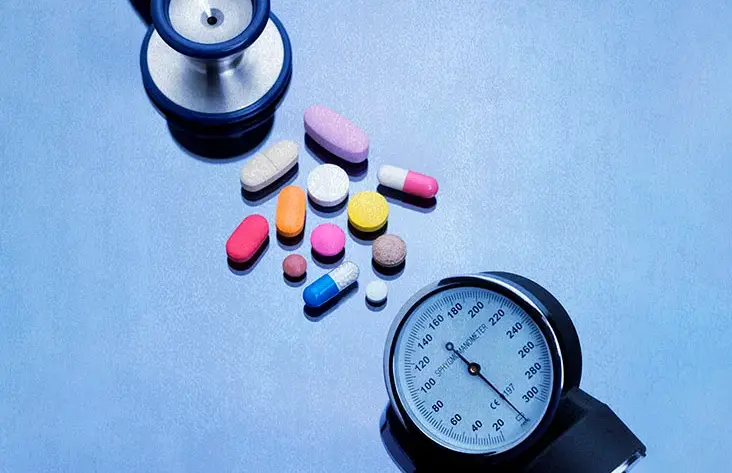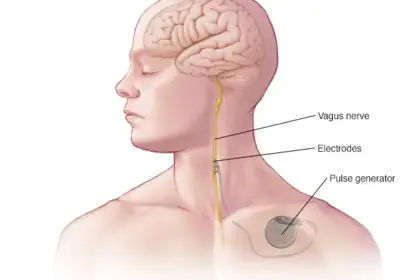In the realm of managing high blood pressure, the stakes couldn’t be higher. With millions around the world grappling with this silent yet potentially deadly condition, finding effective treatments is paramount. However, not all solutions are created equal. Some medications, despite their widespread use, come with risks that can outweigh their benefits. In this article, we’ll unveil the top three high blood pressure medications that demand caution, shedding light on the potential dangers they pose to your health. But fear not, for we’ll also explore a safer, more holistic approach to managing blood pressure that empowers you to take control of your cardiovascular health naturally. So, let’s embark on this journey towards a healthier, lower blood pressure, steering clear of the pitfalls that can hinder your progress.
The Top 3 Most Dangerous High Blood Pressure Medications
1. Alpha-Blockers:
- Doxazosin (Cardura)
- Prazosin (Minipress)
- Terazosin
Alpha-blockers are a class of medications that work by relaxing the muscles in your arteries and veins, allowing for better blood flow. While they can be effective in reducing blood pressure, they come with a host of potentially dangerous side effects.
Danger Zone: One of the most significant concerns with alpha-blockers is their potential to cause a sudden drop in blood pressure, leading to dizziness, lightheadedness, and even fainting. This risk is particularly pronounced when standing up quickly or after extended periods of inactivity.
Side Effects:
- Orthostatic hypotension (a sudden drop in blood pressure)
- Dizziness and lightheadedness
- Fatigue and weakness
- Rapid heart rate
- Swelling in the extremities
- Difficulty breathing
2. Beta-Blockers:
- Metoprolol
- Carvedilol
- Atenolol
Beta-blockers are widely prescribed to help reduce heart rate and cardiac output, thus lowering blood pressure. However, they come with their own set of potential dangers.
Danger Zone: For some individuals, beta-blockers can lead to a masking effect, concealing the symptoms of an impending heart attack. This can be especially concerning for those at higher risk for cardiovascular events.
Side Effects:
- Fatigue and weakness
- Cold hands and feet
- Depression or vivid dreams
- Reduced exercise tolerance
- Insomnia or trouble sleeping
- Weight gain
3. Calcium Channel Blockers:
- Verelan
- Norvasc
- Dilacor
Calcium channel blockers are designed to relax blood vessels and increase the supply of blood and oxygen to the heart. While they can be effective in managing high blood pressure, they too carry their own set of risks.
Danger Zone: In some cases, calcium channel blockers can lead to an abnormal heart rhythm, a condition known as arrhythmia. This can manifest as palpitations, dizziness, and, in severe cases, chest pain.
Side Effects:
- Rapid heartbeat or palpitations
- Swelling in the ankles and feet
- Constipation
- Headaches and dizziness
- Flushing or feeling warm
- Gingival overgrowth (enlarged gums)
It’s important to note that while these medications can be vital tools in managing high blood pressure, their risks should be weighed carefully against their benefits. Always consult with your healthcare provider to determine the most appropriate treatment plan for your individual circumstances.
In light of these potential dangers, it’s worth exploring alternative, natural approaches to managing high blood pressure. Lifestyle changes, including dietary adjustments, regular exercise, stress reduction techniques, and proper sleep hygiene, can be powerful allies in achieving and maintaining optimal blood pressure levels. In the next section, we’ll delve into these holistic strategies to empower you on your journey towards better cardiovascular health.
Medicinal Plants & Herbs Scientifically Proven To Reduce High Blood Pressure
Garlic: Nature’s Blood Pressure Helper
Garlic, known for its strong flavor, has a history of being used to tackle heart-related issues, especially high cholesterol. It’s also believed to help lower blood pressure. The key component responsible for its benefits is allicin, which not only gives garlic its distinctive smell but also contributes to its healing properties. Studies suggest that garlic may be particularly effective in reducing blood pressure for those with elevated systolic pressure. Click Here To Check Out Starwest Botanicals Garlic Capsule Supplements
Celery: A Natural Liver-Friendly Solution
According to traditional Chinese medicine, celery can be helpful for high blood pressure linked to liver issues. In China, it has been used successfully to lower blood pressure in many patients. One method involves mixing fresh celery juice with honey and consuming it three times a day for up to a week. Additionally, celery has shown promise in reducing both systolic and diastolic blood pressure.
Green Tea/Oolong Tea: Your Brew for Blood Pressure Control
Research has pointed to a link between consuming green tea and oolong tea and a reduced risk of developing high blood pressure. These teas contain beneficial compounds that promote the production of nitric oxide, which helps widen blood vessels and improve circulation. Click Here To Check Out Starwest Botanicals Green Tea & Oolong Tea Here
Hibiscus Flowers: A Well-Studied Hypertension Herb
Hibiscus has been extensively researched for its ability to lower blood pressure. Different parts of the plant, including the leaves, calyx, and corolla, have been used traditionally in various West African countries for medicinal purposes. The antihypertensive effects are attributed to mechanisms involving acetylcholine and histamine-like pathways, leading to direct relaxation of blood vessels. Click Here To Check Out Starwest Botanicals Organic Hibiscus Tea
French Lavender: A Gentle Approach to Blood Pressure Management
Extracts from French Lavender have been reported to lead to a drop in blood pressure and heart rate in animal studies. These effects appear to be mediated through mechanisms similar to those activated by acetylcholine. Click Here To Check Out Starwest Botanicals Organic Lavender Tea
Flaxseed: Omega-3 Power for Heart Health
Flaxseed, rich in omega-3 fatty acids, has been linked to lower blood pressure in studies. These essential fatty acids play a role in cardiovascular health and may help in reducing cholesterol levels, inflammation, and oxidative stress. Click Here To Check out Starwest Botanicals Organic Flaxseed
Moringa: A Quick Dip in Blood Pressure
Extracts from the leaves of the Moringa plant have demonstrated a dose-dependent decrease in blood pressure in anesthetized rats. Though the effect is brief, it highlights the potential of Moringa as a natural antihypertensive agent. Click Here To Check Out Starwest Botanicals Moringa Capsules
Basil: More Than Just a Culinary Herb
A crude extract of basil has been shown to lower systolic, diastolic, and mean blood pressure in a dose-dependent manner. This cardiovascular effect is attributed to eugenol, a compound in basil, which works by blocking calcium channels. Click Here To Check out Starwest Botanicals Organic Dried Holy Basil
Pomegranate: The Heart-Friendly Fruit
Pomegranate juice has gained popularity for its potential heart benefits. It’s been associated with reduced activity of enzymes related to blood pressure regulation. While research results vary, some studies suggest modest reductions in blood pressure with regular consumption.
Radish: A Root Veggie for Lowering Blood Pressure
Studies indicate that radish has antihypertensive properties. Its extract has been found to lead to a dose-dependent fall in both blood pressure and heart rate in rats. These effects are mediated through pathways sensitive to atropine.
Sesame Seeds/Sesame Oil: The Heart-Healthy Oil
Sesame seeds and sesame oil have shown hypotensive effects in studies on rats. The active components in sesame seeds appear to influence calcium channels, contributing to their blood pressure-lowering properties. Click Here To Check Out Starwest Botanicals Organic Sesame Seeds
Cacao/Dark Chocolate: Sweet Relief for Blood Pressure
Cocoa, rich in flavonoids, is believed to promote heart health. Flavonoids increase the production of nitric oxide, leading to improved blood vessel function. Studies suggest that daily consumption of dark or milk chocolate can lead to a modest reduction in blood pressure. Click Here To Check Out Organic Cacao Nibs From Starwest Botanicals
Cat’s Claw Herb: A Natural Regulator of Blood Pressure
Cat’s Claw herb has been used in traditional medicine to lower blood pressure and alleviate neurological symptoms. It contains an indole alkaloid called hirsutine, which is thought to act on calcium channels, contributing to its antihypertensive effects. Click Here To Check Out Radiate 21, A Health Boosting Supplement Containing Cat’s Claw & 20 Other Amazing Botanicals
Mistletoe: A Natural Nitric Oxide Booster
Mistletoe has demonstrated significant vasodilator activity, suggesting it may enhance the nitric oxide pathway. Studies have shown mistletoe’s potential to decrease blood pressure without affecting heart rate. Click Here To Check Out Starwest Botanicals Organic Mistletoe Herb
Ginger: A Circulation-Boosting Herb
Ginger is known to improve blood flow and relax the muscles around blood vessels, which can help lower blood pressure. It’s a natural way to support heart health. Click Here To Check Out Starwest Botanicals Organic Ginger Tea Bags
Embracing Nature’s Solutions for Blood Pressure Management
In the quest for healthy blood pressure, nature provides a diverse array of remedies, each with its unique benefits and mechanisms of action. From the pungent garlic cloves to the soothing properties of mistletoe, these natural options offer a gentle yet effective approach to blood pressure management.
While pharmaceutical interventions certainly have their place, it’s crucial to recognize the potential risks associated with certain medications. By incorporating these natural alternatives into your lifestyle, you can complement your treatment plan and take an active role in safeguarding your cardiovascular health.
Remember, consulting with your healthcare provider is essential before making any significant changes to your blood pressure management strategy. They can help tailor an approach that aligns with your individual health profile and needs.
Incorporating these natural remedies, along with a balanced diet, regular exercise, and stress-reducing practices, can pave the way for a healthier, more vibrant life. By embracing the gifts that nature offers, you can take proactive steps towards maintaining optimal blood pressure and ensuring a thriving, resilient heart for years to come.




